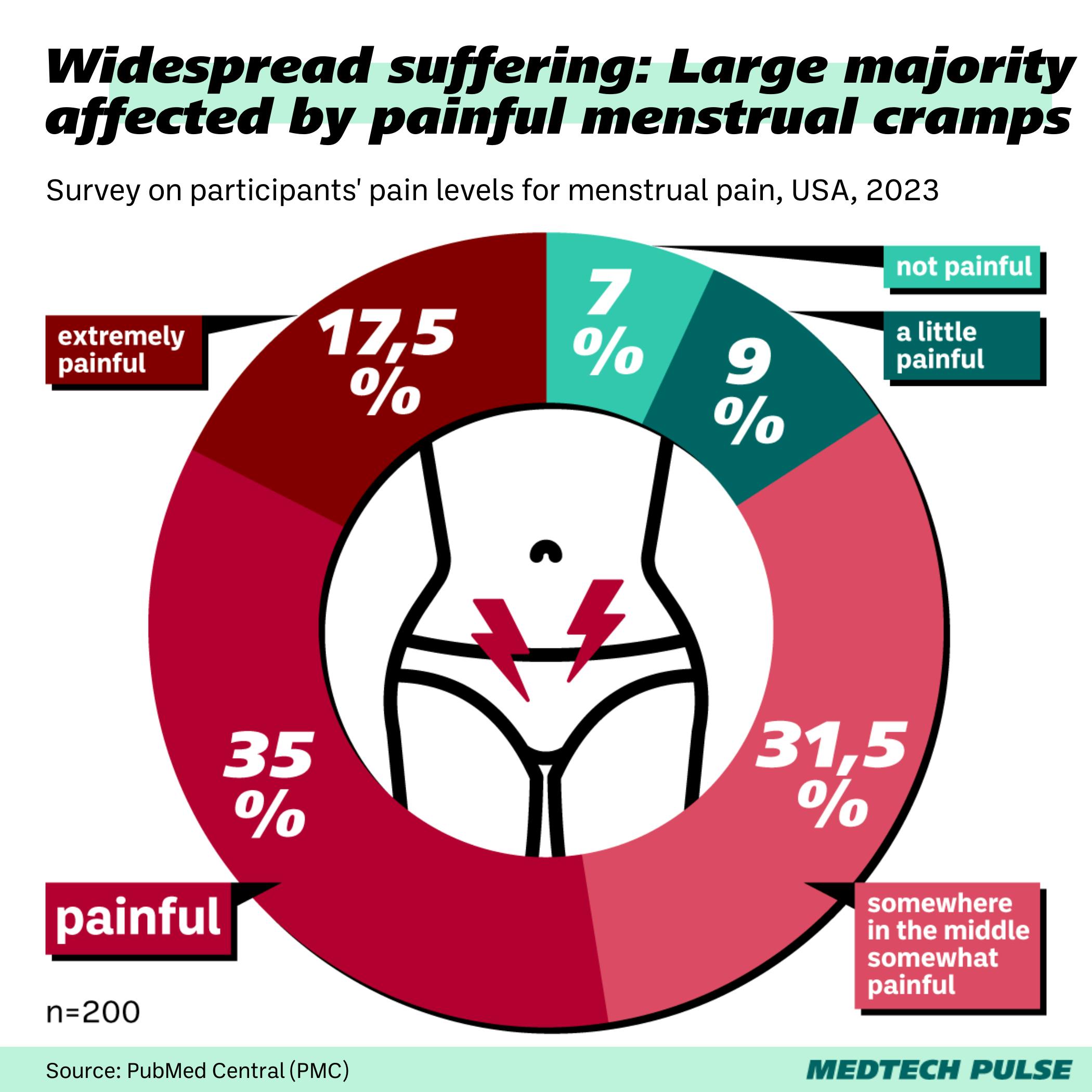A drug-free alternative for menstrual pain: Electrical brain stimulation
When it comes to menstruation, one need that comes to mind is pain relief. Now, menstruators may have a new option for period pain relief that doesn’t involve popping ibuprofen after ibuprofen.
UK medtech Samphire Neuroscience is building a wearable device to tackle menstrual pain and associated mood disorders like premenstrual dysphoric disorder (PMDD).
The device, called Nettle, is a headband. But how does a device placed on your head relieve pain, often localized in the abdomen?
Nettle’s function draws on transcranial direct current stimulation (tDCS), a non-invasive form of electrical brain stimulation. This kind of neuromodulation targets areas of the brain responsible for pain and mood.
Neuromodulation for period pain
For those unfamiliar with neuromodulation, an electrical stimulation headset may evoke electroconvulsive therapy (ECT) or even something more invasive like a brain-computer interface (BCI).
That’s why an aspect of Nettle that Samphire emphasizes is how “natural” it is.
The term “natural” is often evoked in the reproductive and sexual health space as a signal that the product or therapy does not involve hormones—such as with Natural Family Planning (NFP). In this case, the word refers to how the electrical stimulation works with how neurons normally function and communicate, allowing for a non-invasive intervention without severe side effects.
The low-current electrical stimulation works by increasing “neuroplasticity”—the brain’s capacity to adapt by shifting its synaptic connections. Samphire’s research has led them to conclude that the menstrual cycle’s hormonal shifts cause changes in the brain that then, in turn, lead to heightened negative mood and pain effects.
By wearing Nettle for five days before their period starts (the luteal phase), users should expect fewer mood and pain symptoms once their period starts.
“One thing that we were surprised by is usually [neurostimulation] technology is known, in other conditions, to be highly effective but the reduction that we have seen in pain within a single period’s use is actually very unusual. It’s extremely high,” Samphire co-founder and CEO Emilé Radytė said. “So it seems that, for women, if you stimulate in the right phase — which in our case is right before your period — that actually really matters. Because instead of needing to stimulate every single day, there seems to be some connection between the way that we perceive pain in different [menstrual] phases.”
Samphire appears to draw inspiration from neuromodulation predecessor Flow Neuroscience, whose similar tDCS headset treats depression without pharmaceuticals. Samphire’s targets are core symptoms associated with premenstrual syndrome (PMS), PMDD, polycystic ovary syndrome (PCOS), and endometriosis.
The burden of menstrual pain and disorders
It’s no secret that women’s pain has been underestimated or even ignored by the medical community for a long time. Menstrual pain is a large part of that picture.
The effects of inadequate solutions for menstrual pain and disorders is felt by many women and society at large. Even just dysmenorrhea (the clinical term for painful periods), one of the most common gynecological complaints, causes menstruators to miss work and school.

Whether it is dysmenorrhea or more complex conditions like endometriosis and PMDD, the treatment options available—mainly pain medications, hormonal contraception, or even surgery— are limited, involve many possible side effects, and are often ineffective in the long-term.
“To me brain stimulation devices are the future,” Radytė said. “Because for any long-term condition… no one wants to constantly take medication. So if we can change that status quo—where women can be dependent on other things [than drugs] to manage their cognitive and physical symptoms—then that has to be the future. Especially because women need to live with these conditions for all of their lives.”
Next, Samphire is tackling relieving pain and other unpleasant symptoms inherent to the fourth trimester of pregnancy and menopause.
We celebrate this work because it is likely to bring much-needed solutions to many under-served conditions. Also, companies like Samphire are addressing a problem underpinning this lack of solutions: A lot of medical research has historical excluding women. With their work, we’re getting a better picture of how female hormones interact with pain, the brain, and many other systems and conditions. Future patients will be better off for it.